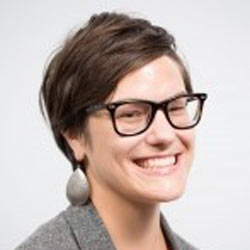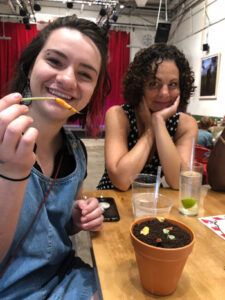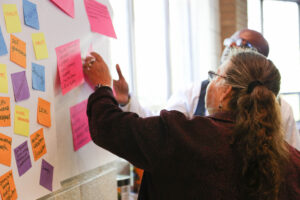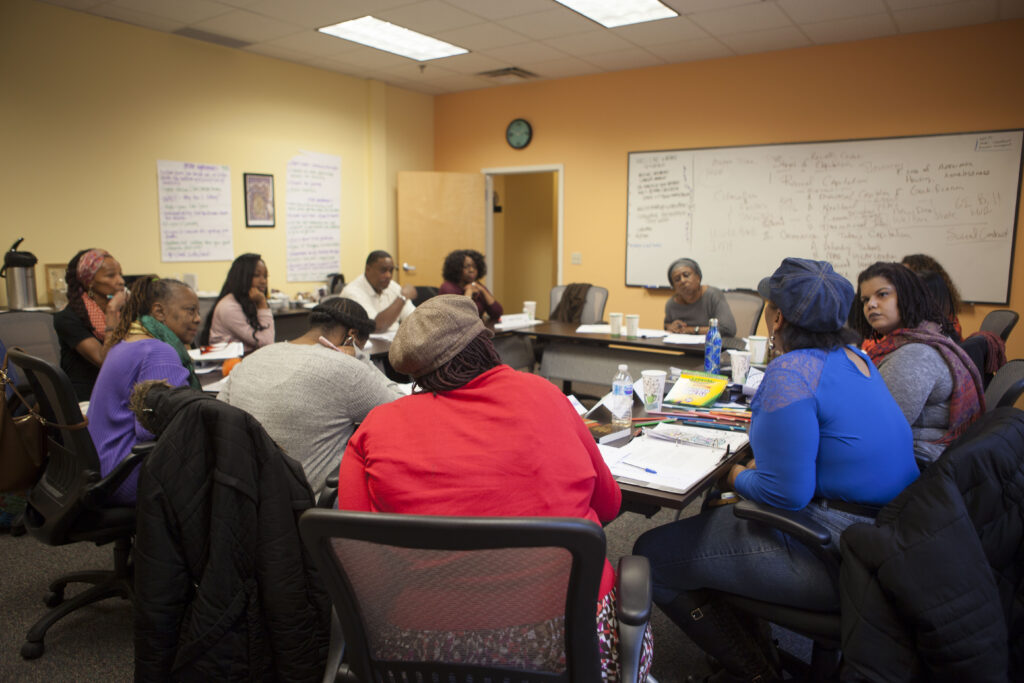Nexus Community Engagement Institute (NCEI) is proud to welcome Caitlin Schwartz, Sindy Morales Garcia and Venessa Fuentes to our NCEI Advisory Committee!
NCEI advances and strengthens communities through equity-based community engagement, both locally and nationally. The NCEI Advisory Committee is composed of local community engagement practitioners who guide and support the work of the Institute, helping to provide vision and strategy as well as to develop and co-lead trainings and workshops on community engagement with NCEI staff.
We’re honored to have the wisdom and experience of Caitlin, Sindy and Venessa to help ground and guide this work moving forward – please help us welcome them to the team!
Get to Know the New NCEI Advisory Committee Members
Caitlin Schwartz
 Caitlin Schwartz has over 12 years of experience in community engagement, organizing, and grassroots leadership development, most recently working on Metro Transit’s Community Outreach & Engagement Team and serving as board member and development committee chair with the Headwaters Foundation for Justice. Her passion is in constituent leadership and ensuring that people are centered in the planning and decision-making that impact their lives. A first-generation college student, she received her Bachelor of Arts from the University of St. Thomas, studying Justice & Peace Studies and Sociology.
Caitlin Schwartz has over 12 years of experience in community engagement, organizing, and grassroots leadership development, most recently working on Metro Transit’s Community Outreach & Engagement Team and serving as board member and development committee chair with the Headwaters Foundation for Justice. Her passion is in constituent leadership and ensuring that people are centered in the planning and decision-making that impact their lives. A first-generation college student, she received her Bachelor of Arts from the University of St. Thomas, studying Justice & Peace Studies and Sociology.
Sindy Morales Garcia
 Driven by a commitment to equity and wholeness, Sindy works with Wilder’s Community Initiatives team to catalyze the cultural shifts needed to co-create transformational and sustainable change. Her work is informed by a rich tapestry of experiences in higher-education advocacy, community collaborations, and faith-based activism. As a facilitator, Sindy enjoys cultivating spaces of meaningful reflection and dialogue that enable participants to strategically advance new thinking and action in their lives and work.
Driven by a commitment to equity and wholeness, Sindy works with Wilder’s Community Initiatives team to catalyze the cultural shifts needed to co-create transformational and sustainable change. Her work is informed by a rich tapestry of experiences in higher-education advocacy, community collaborations, and faith-based activism. As a facilitator, Sindy enjoys cultivating spaces of meaningful reflection and dialogue that enable participants to strategically advance new thinking and action in their lives and work.
Originally from Quetzaltenango Guatemala, Sindy comes from a family of community organizers. Her family’s narrative of struggle, resilience, and strategic disruption led her to center her personal and educational journey on deepening her understanding of liberation, healing, and social justice. This includes a degree in Reconciliation Studies at Bethel University, community organizing and public policy at the Silberman School of Social Work, and liberation theology and social ethics at Union Theological Seminary.
Venessa Fuentes
 Venessa is a local artist and advocate who, since 1997, has worked in Twin Cities arts, community development, and grantmaking nonprofits. Recently, she held positions at the Bush Foundation and Jerome Foundation – both in grantmaking and communications. Venessa is an alum of the inaugural cohort of the Ron McKinley Philanthropy Fellowship.
Venessa is a local artist and advocate who, since 1997, has worked in Twin Cities arts, community development, and grantmaking nonprofits. Recently, she held positions at the Bush Foundation and Jerome Foundation – both in grantmaking and communications. Venessa is an alum of the inaugural cohort of the Ron McKinley Philanthropy Fellowship.


